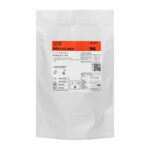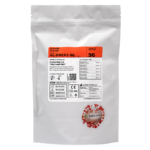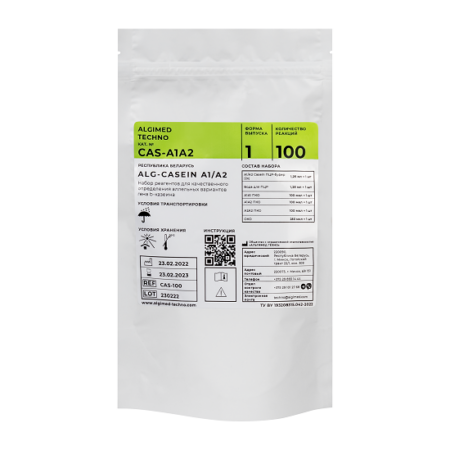
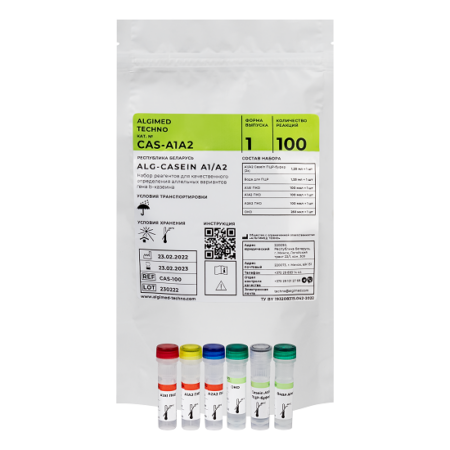
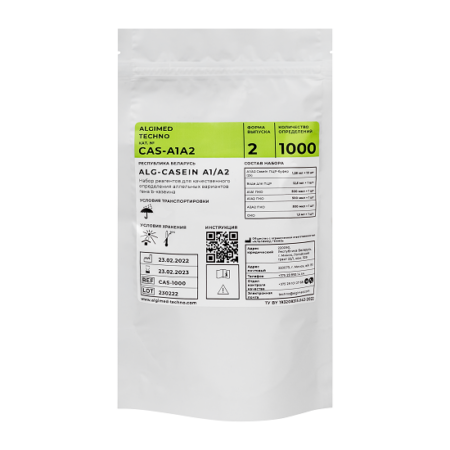
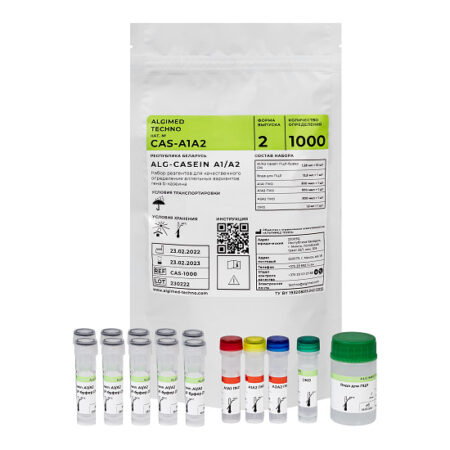
«ALG-CASEIN A1/A2» Real-Time PCR kit
«ALG-CASEIN A1/A2» Real-Time PCR kit is designed to identify allelic variants of the beta-casein gene (β-CNA1 and β-CNA2) of Bos taurus to form a prosperous group of highly productive cattle dairy. The kit is recommended for the identification of homozygous animal genotypes with their subsequent sorting and selection of animals into separate herds for the production of milk A2 and the exclusion of milk A1.
PDF for download
«ALG-CASEIN A1/A2» Real-Time PCR kit includes all the necessary components for real-time PCR: positive, negative and internal control, water, buffers and enzymes.
We express our gratitude for the joint development and validation of studies on animal samples to the employees of the Center for Genetics and Reproduction (a branch of Algimed Techno LLC). Services for genotyping of cattle to identify A1 and A2 animals can be ordered on the website – https://labgen.by/
The test principle is based on the amplification of a specific DNA region with allele-specific probes to determine allelic variants of the β-casein gene (β-CNA1 and β-CNA2) in Bos taurus. The accumulation of amplification products is detected by measuring the intensity of the fluorescent signal in real time via the FAM and HEX channels.
- Quick result (90 minutes for analysis);
- Turnkey solution including all necessary reagents;
- Fast, reliable and highly sensitive result;
- Availability of analysis of the obtained results.
Test material:
- Genomic DNA isolated from Bos taurus tissue samples.
Personnel qualification requirements: only people with the appropriate education and the necessary skills to work in a PCR laboratory are allowed to work with the kit.
The kit is adapted for thermocyclers of plate and rotary type.
Time of the study:
- Time for manual manipulation is 5-15 min;
- Time of the PCR protocol is 71 minutes;
- Total time for analysis is 90 minutes.
Detection limit:
- 7.5 genomic copies per reaction.
Shelf life: 12 months.
- SC-042-100
- SC-042-1000
«ALG-CASEIN A1/A2» Real-Time PCR kit (SC-042-100, 100 reactions):
- A1A2 Casein PCR buffer (2x) – 1,25 ml × 1 pc;
- Water for PCR – 1,25 ml × 1 pc;
- А1А1 PCS – 100 mkl × 1 pc;
- А1А2 PCS – 100 mkl × 1 pc;
- А2А2 PCS – 100 mkl × 1 pc;
- NCS – 250 mkl × 1 pc.
«ALG-CASEIN A1/A2» Real-Time PCR kit (SC-042-1000, 1000 reactions):
- A1A2 Casein PCR buffer (2x) – 1,25 ml × 10 pcs;
- Water for PCR – 12,5 ml × 1 pc;
- А1А1 PCS – 500 mkl × 1 pc;
- А1А2 PCS – 500 mkl × 1 pc;
- А2А2 PCS – 500 mkl × 1 pc;
- NCS – 1,5 ml × 1 pc.
